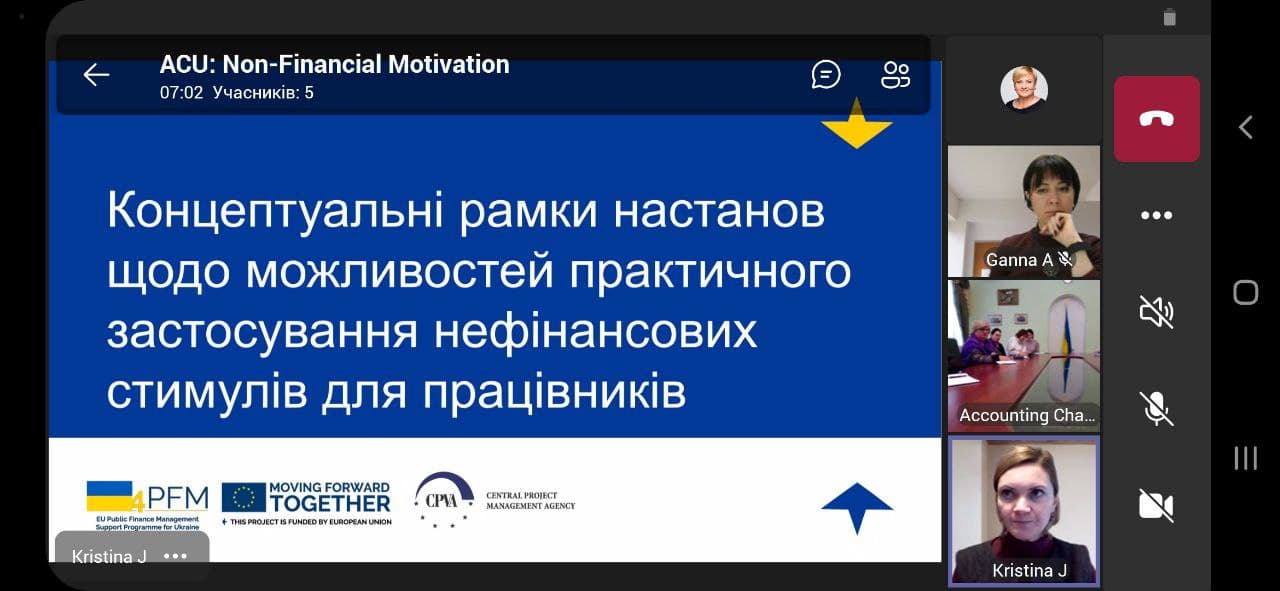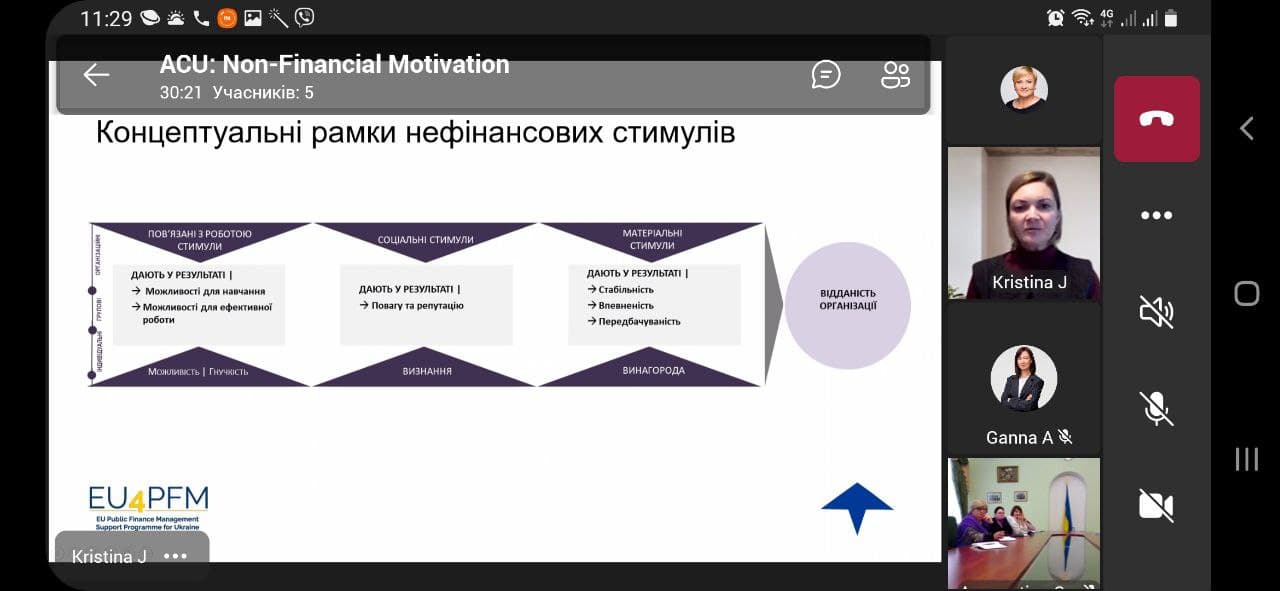Non-financial incentives for the staff are stronger than financial ones — according to McKinsey & Company’s survey
Every good leader is looking for an answer to the question of how to encourage professionals to work in their particular institution or organization.
A number of meetings for representatives of the Ministry of Finance of Ukraine, the State Customs Service of Ukraine, and the Accounting Chamber, which took place on October 27–28, 2021, were dedicated to the issue of non-financial incentives for employees of public institutions.

The EU4PFM project expert, Kristina Jakubaitytė-Revutienė was a speaker at the event.
The participants of the meetings had the opportunity to study examples of best practices of non-financial incentives in government agencies in Lithuania, Iceland, the UK, and other member-states of the European Union.
“Motivation is among the most important psychological factors accounting for an employee’s performance and retention,” Kristina Jakubaitytė-Revutienė emphasized. According to her, each organization seeks ways and means, in other words: incentives that can positively affect the motivation and behavior of a person or a team. Usually, incentives clearly reflect the values of an organization and are intended to reward employees in line with the context and culture of that organization.
The task of the institution’s leadership is their ability to combine financial (salaries, bonuses, social benefits, and guarantees) and non-financial incentives.
During the discussion, the expert revealed the content and significance of the following non-financial incentives for different types of employees:
- working conditions;
- opportunity to combine family and work responsibilities;
- opportunity to study and improve skills;
- career;
- recognition;
- participation in decision-making;
- relationships with managers and colleagues;
- opportunity to take the initiative.
The above list is not complete. The experience of Lithuania shows to the Ukrainian institutions how to properly formulate motivational tools, using such categories as “recognition”, “reward”, “opportunities” or “flexibility”.
“According to a quarterly global study by McKinsey & Company,” Kristina Jakubaitytė-Revutienė noted, “non-financial incentives were found to be stronger motivators than financial ones. Three non-financial motivators that are most valued by employees are praise from line managers; senior management’s attention, such as personal conversations, and the opportunity to lead projects or working groups — all those opportunities also develop employee leadership skills that have long-term benefits for the organization.”
Salary is also among the top-10 incentives but it does not occupy the leading positions.
At the same time, the EU member states are looking for new motivational tools for the staff, and particularly, for the public sector. So, in Lithuania, these are opportunities for career growth, training, and development of professional skills, etc. In Iceland, for example, an experiment was conducted in 2015–2019 to introduce a 4-day work week, which fundamentally affected the psychological state of employees and their ability to combine work with personal lives. After its completion, many companies retained such schedules. Last year taught over 400,000 civil servants in the UK to work from home. “Apparently, in the future, the British civil servants will work in a hybrid format based on the experience of civil service in that country,” said Kristina Jakubaitytė-Revutienė.
The expert also spoke on the negative aspects of the work environment that demotivate employees, such as non-constructive criticism or a large number of unnecessary rules, etc., and elaborated on what behaviors or human resource policies are best to be avoided in order to retain the team and valuable employees.
The discussion became a good basis for the development of non-financial tools to motivate staff for human resources departments of public institutions operating in the area of public finance management in Ukraine.
Let’s implement changes together!


